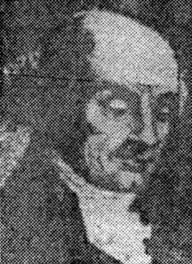Nathaniel Brassey Halhed
| Nathaniel Brassey Halhed | |
|---|---|
 |
|
| Born | 25 May 1751 Westminster |
| Died | 18 February 1830 |
| Occupation | Orientalist and philologist |
Nathaniel Brassey Halhed (25 May 1751 – 18 February 1830) was an English Orientalist and philologist.
Halhed was born at Westminster, and was educated at Harrow School, where he began a close friendship with Richard Brinsley Sheridan. He entered Christ Church, Oxford, and while at Oxford he met William Jones who induced him to study Arabic. Accepting a writership in the service of the East India Company, Halhed went out to India, and there, at the suggestion of Warren Hastings, translated the Hindu legal code from a Persian version of the original Sanskrit. This translation was published in 1776 as A Code of Gentoo Laws. In 1778 he published a Bengali grammar, to print which he set up the first Bengali press in India.
In 1785 Halhed returned to England, and from 1790–1795 was Member of Parliament for Lymington, Hants. For some time he was a disciple of Richard Brothers, and a speech in parliament in defence of Brothers made it impossible for him to remain in the House of Commons, from which he resigned in 1795. He subsequently obtained a home appointment under the East India Company. He died in London on 18 February 1830.
Nathaniel Brassey Halhed was born in a merchant family to William Halhed, a bank director, on 25 May 1751 and christened in the parish of St. Peter-le-Poor, Old Broad Street; his mother was Frances Caswall, daughter of John Caswall, Member of Parliament for Leominster. He went to Harrow School from the age of seven to seventeen.
...
Wikipedia
